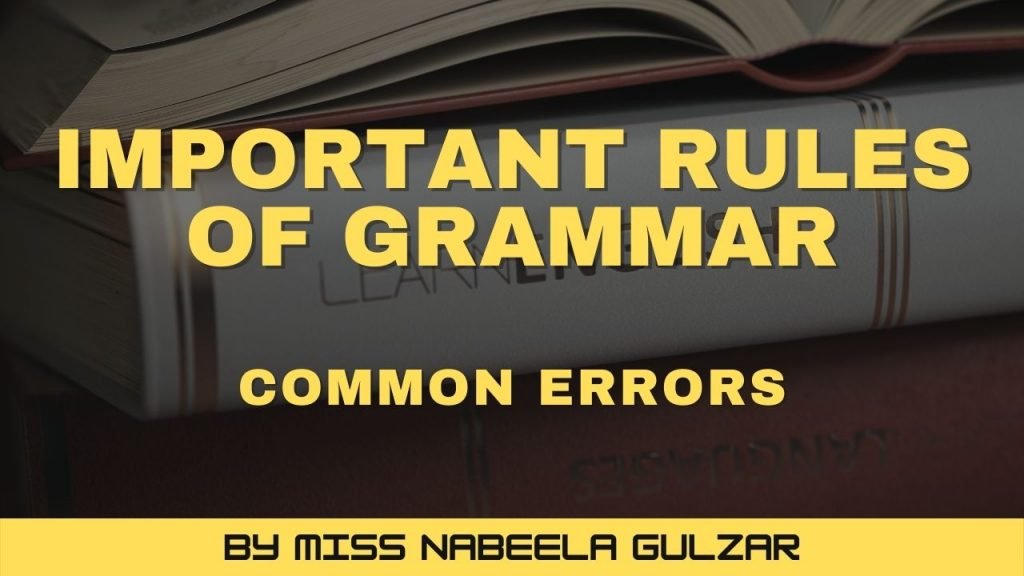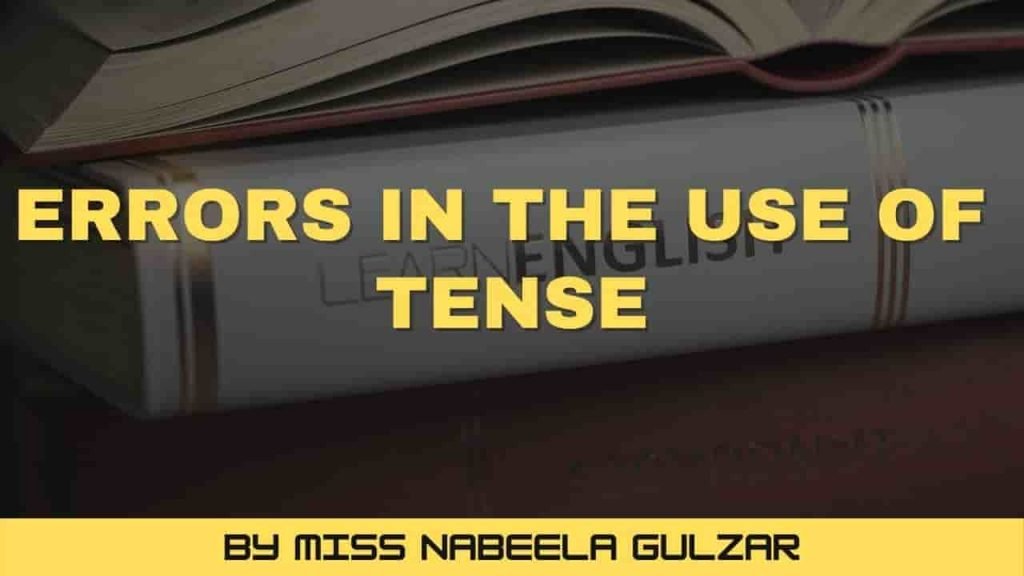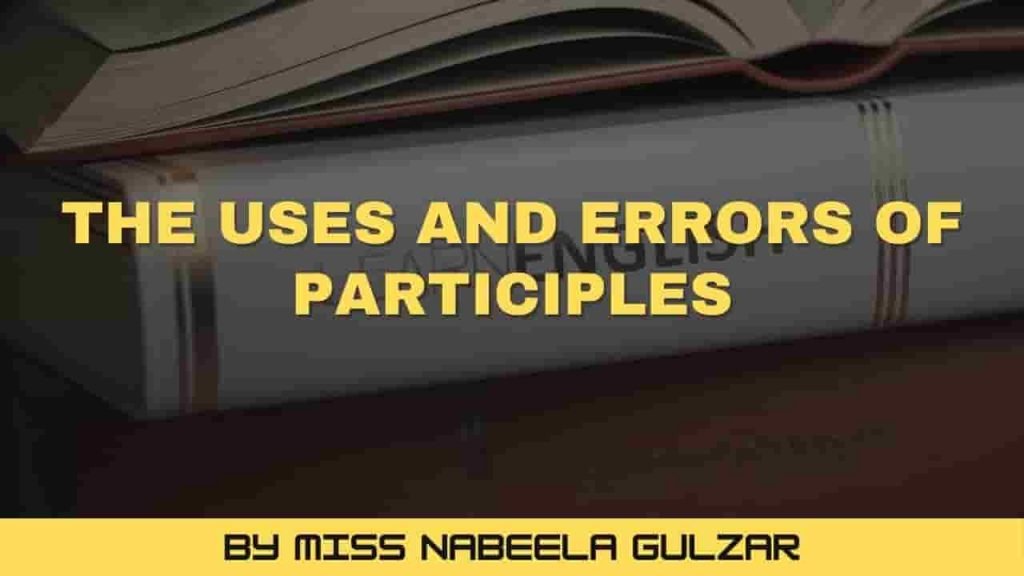10 Common Errors – Important Rules of Grammar
1. When the subject is singular, take a singular verb. If the subject is plural, take a plural verb.
Agreement of subject with verb
| Singular Verbs | Plural Verbs |
| is | are |
| was | were |
| has | have |
| eats, goes, | Eat, go |
Examples:
1. He go to college daily. (Incorrect)
He goes to college daily. (Correct)
2. The crow are thirsty.(Incorrect)
The crow is thirsty.(Correct)
3. The boys has taken the test.(Incorrect)
The boys have taken the test.(Correct)
2. When two or more singular subjects are joined by “and” take a plural verb.
Examples:
1. A boy and a girl is reading.(Incorrect)
A boy and a girl are reading. (Correct)
2. The wall and the tower has fallen.(Incorrect)
The wall and the tower have fallen. (Correct)
3. The viceroy and the governor is in the town.(Incorrect)
The viceroy and the governor are in the town.(Correct)
3. Two singular nouns joined by “and” if they mean the same person or object take a singular verb. In such cases both the nouns take the same “a, an, the” article.
Examples:
1. The poet and philosopher are dead. (incorrect)
The poet and philosopher is dead. (Correct)
2. Slow and steady win the race. (Incorrect)
Slow and steady wins the race. (Correct)
3. A white and red car are parked in the street.(Incorrect)
A white and red car is parked in the street.(Correct)
4. The following words have a singular verb if they are used as subject.
- Each
- Every
- Either
- Neither
- None
- Many ( a large number)
Examples:
1. Each one of them were guilty. (Incorrect)
Each one of them was guilty. (Correct)
2. Many a men were drowned. (Incorrect)
Many a man was drowned. (Correct)
3. None of them are innocent. (Incorrect)
None of them is innocent. (Correct)
Sometimes None takes plural verb. As. None of them have attended the function.
5. Two singular nouns joined by “either–or”, “neither-nor” take the verb in the singular.
Examples:
Either he or his brother have stolen the book. (Incorrect)
Either he or his brother has stolen the book. (Correct)
Neither she nor her daughter have stolen the watch. (Incorrect)
Neither she nor her daughter has stolen the watch. (Correct)
6. When two subjects, joined by “either-or” “neither-nor” are of different persons, the verb agrees in person with the one nearest to it.
Examples:
1. Neither he nor we is angry. (Incorrect)
Neither he nor we are angry. (Correct)
2. Either you or he are mistaken. (Incorrect)
Either you or he is mistaken. (Correct)
3. Neither Saleem nor his brothers have written the paper. (Incorrect)
Neither Saleem nor his brothers has written the paper. (Correct)
It is still better to say.
1. Neither he is angry nor we are.(Correct)
2. Either yor are mistaken or he is.(Correct)
3. Neither you are to blame nor he is.(Correct)
7. When two nouns are joined by “with” or “as well as” the verb agrees with the first noun whether it is singular or plural.
Examples:
1. The principal with all teachers have gone out for a walk. (Incorrect)
The principal with all teachers has gone out for a walk. (Correct)
2. Physics as well as Mathematics are taught in this college. (Incorrect)
Physics as well as Mathematics is taught in this college. (Correct)
8. More than one: use singular verb always.
Examples:
Sometimes, more than one student are absent. (Incorrect)
Sometimes, more than one student is absent. (Correct)
9. A number (Singular verb)
The number (Plural verb)
Examples:
1. A number of people is waiting to congratulate you. (Incorrect)
A number of people are waiting to congratulate you. (Correct)
2. The number of old people have increased in recent years. (Incorrect)
The number of old people has increased in recent years. (Correct)
10. The rest, all of, some of, a lot of, most of, majority.
- Use singular verbs when these words refer to an uncountable noun.
- Use plural verbs when these words refer to countable nouns.
Examples:
1. The rest of the meat (rice, milk) are bad. (Incorrect)
The rest of the meat (rice, milk) is bad. (Correct)
2. The rest of the men (cakes) is bad. (Incorrect)
The rest of the men (cakes) are bad. (Correct)
Hopefully, your concept about Common Errors is clear now, This lecture is part of the whole series of English Grammar by Miss Nabila Gulzar, For Other Lectures Click Here also We have an Essay on every topic, Check the complete list here. If you are Studying in Matric Free Video Lectures of Maths, Physics and English are here, and if we got you covered for I.COM Business Maths also.







